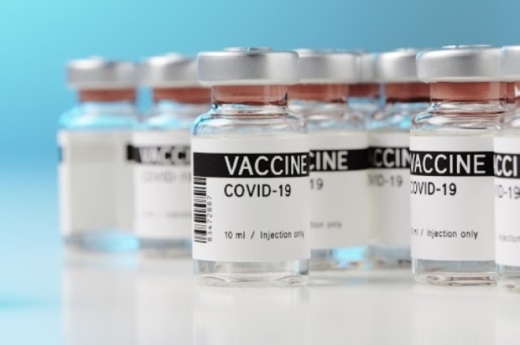“There’s light at the end of the tunnel,” said Dr. Marc Boom, president and CEO of the Houston Methodist hospital system during a press briefing Dec. 14 to provide updates on incoming COVID-19 vaccine.
A vaccine produced by pharmaceutical company Pfizer and biotechnology firm BioNTech were granted emergency use authorization by the U.S. Food and Drug Administration on Dec. 11. Another vaccine produced by American biotechnology company Moderna will be reviewed Dec. 17 by the FDA’s Vaccines and Related Biological Products Advisory Committee.
According to vaccine distribution data from the Texas Department of State Health Services, Houston’s MD Anderson Cancer Center was the first TMC institution to receive doses of the Pfizer-BioNTech vaccine Dec. 14; the center is expected to receive a total distribution of 4,875 doses through the rest of the week. This is from a total 224,250 doses of the vaccine allocated to Texas that are being shipped to 110 providers through the rest of the week. Hospitals that make up Texas Medical Center will receive over 55,000 combined doses in this shipment.
Hospital and front-line workers will be the first recipients of the vaccine, Boom said.
The Houston Methodist health system will be receiving over 13,000 doses across its hospitals starting Dec. 15, including those in Fort Bend, Harris, and Montgomery counties, according to the DSHS.
Houston Methodist will distribute the vaccine to a couple hundred health care workers Dec. 15 as vaccine sites begin to ramp up. On Dec. 16, Houston Methodist will begin distributing over 2,000 vaccinations a day to its workers, prioritizing those who are most frequently in contact with COVID-19 patients. In total, the Houston Methodist health system has over 30,000 workers.
“We’re excited to get those workers vaccinated,” Boom said.
Should the supply of the vaccine remain steady, Boom predicted that by New Year’s, or the first week of January, Houston Methodist would begin distributing vaccines to its most-at risk patients.
One particular challenge has been the immense amount of preparation hospitals have needed in order to ensure that facilities have the refrigeration necessary to house the vaccines. According to TMC President and CEO Bill McKeon, the Pfizer-BioNTech vaccine must be stored at minus 70 degrees Celsius, and the Moderna vaccine must be stored at minus 4 degrees Celsius.
Another challenge as vaccine distribution continues will be to gain the necessary buy-in from the community on the vaccine’s safety and efficacy, said Paul Klotman, president and CEO of Baylor College of Medicine.
“The safety profile has been excellent,” Klotman said. “The development hasn’t been rushed. As best as we can tell, it’s incredibly safe.”
This is because mRNA vaccines, such as the ones from Pfizer-BioNTech and Moderna, teach the body’s cells how to make a protein—or even just a piece of a protein—that triggers an immune response inside our bodies, according to the Centers for Disease Control and Prevention. That immune response, which produces antibodies, is what protects the body from getting infected in the event that the real virus enters the body.





